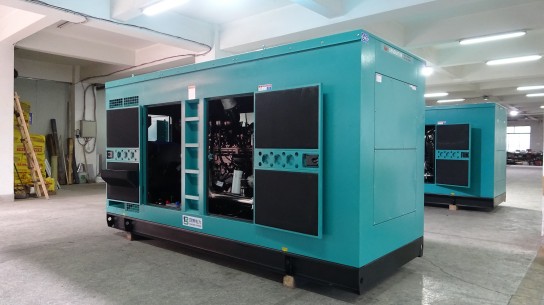Electricity is a basic necessity of life. Diesel generators can provide a reliable and consistent power supply when the power grid fails. They can serve as an emergency power supply or as the main power source in places without connection to a power grid. However, diesel generators can pose risks if used improperly. This articles covers several diesel generator safety precautions you need to know. Read on and learn how to operate and maintain your generator safely.
Proper placement and ventilation
It’s important to choose an appropriate location for your diesel generator. The machine produces contain carbon monoxide and other dangerous gases as well as noise during operation. Thus, you need to place it in the open to allow for proper ventilation. DO NOT run your generator inside your home or garage or in any other enclosed space. Keep the generator away from your home's windows and doors and place it at least 15 feet from open windows.
If you use a stationary generator, place it on solid, level ground and secure it on a concrete slab. A large commercial diesel generator can also be placed in a designated generator room that has been specially designed to provide the necessary ventilation. Dingbo Power recommends that you install a CO detector or a CO alarm with battery back-up for your home, which provides early detection of carbon monoxide buildup, minimizing health risks associated with exposure.

Protection from unauthorized access
For safety, general employees and visitors are not allowed to access the commercial diesel generator. You can use safety barriers such as fences, bars or walls to restrict unauthorized personnel from accessing the industrial generator installation area. Ensure that the barriers are sturdy, tall enough to discourage climbing. Only trained and authorized personnel should operate and maintain diesel generators. Regular safety training and tests should be conducted to reinforce proper handling protocols.
Install a transfer switch
To ensure the safety and efficient operation of your diesel generator, you need to check electrical connections is and make sure they are tight and properly connected. If you connect the generator directly to your home's electrical system, it’s necessary to install a transfer switch, which can prevent back feeding. Back feeding occurs when a generator is plugged directly to the electric panel or circuit in a building, which can endanger utility workers and damage your generator. Using a transfer switch ensures that you can power whatever you need without having to worry about electrical hazards.
Refuel your diesel generator correctly
Never refuel your generator while it’s running. To be safe, you need to shut off the machine and let it completely cool down before refueling. In addition, disconnect electrical power to the generator during the refueling process to prevent any chance of accidental ignition or electric shock. To reduce the risk of spillage and potential fire hazards, don’t overfill the fuel tank. Additionally, keep a fire extinguisher nearby.
Store fuel properly
Proper fuel storage can also minimize the risk of accidental ignition within the industrial generator installation site. Do not store fuel indoors. Store your diesel fuel in approved containers and place them in a temperature-controlled, well-ventilated area of your facility that is away from potential ignition sources. Make sure fuel storage areas and containers are properly labeled. Regularly inspect fuel storage areas for leaks, and address any issues promptly.
Ensure sufficient clearance
If indoor placement is necessary, ensure that the generator is positioned in an area with sufficient clearance. Always store your generator in a dry, clean area with enough space to accommodate generator maintenance. There should be about 3ft-5ft of clearance between your generator and surroundings. Maintain a minimum clearance of 15 feet between the generator and any nearby doors, windows, and vents to prevent the infiltration of exhaust fumes.
Protect your generator from adverse weather conditions
Diesel generators should be kept dry when operating. Don't run your generator unprotected in rain or snow. You can erect a canopy cover structure and steel enclosure and lay a solid concrete foundation to protect the unit during heavy winds, rain, and other inclement weather. Keep in mind that don’t touch your generator with wet hands, as you could be electrocuted.
Don’t overload your diesel generator
It’s important to choose a right size diesel generator set that can handle the electrical load of your business. Avoid overloading your generator, or it may cause overheating, which can result in engine shutdown and possibly cause irreparable damage.
Follow manufacturer’s instructions to operate the generator
It’s crucial to read and follow the manufacturer’s instructions before using the generator. Familiarize yourself with the manufacturer’s instructions for safe operation and installation of industrial diesel generators. Never connect the unit to a wall outlet and ask a qualified professional to install the generator to prevent damage.
Maintain your diesel generator regularly
Regular generator inspections and maintenance can ensure the generators function at their best. Over time, filters can become clogged, fuel injectors can become dirty, and batteries can become weak. You should check the exhaust system, fuel lines, and ventilation components regularly to minimize the risk of gas leaks and help ensure the generator's longevity. .
Don’t hesitate to reach out for any further information or assistance regarding to diesel generator safety precautions. Contact us at dingbo@dieselgeneratortech.com, and we will gladly help you.
Comments
Post a Comment